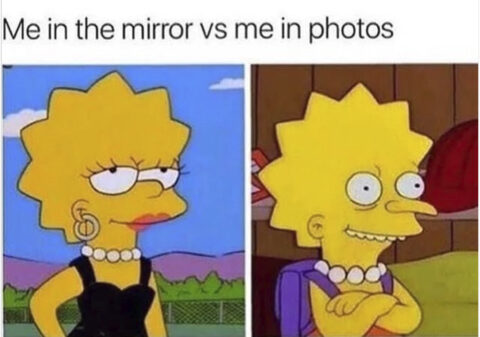Rob Henderson explains why so many people — not down-to-earth sensible folks like my readers, of course — seem to have an inflated view of their own attractiveness:
A few years ago, a study on online dating found that people tend to reach up the hierarchy toward potential partners who are more desirable than themselves. On average, people pursued partners who are 25% more desirable than they themselves are.
This is consistent with what the psychologist Roy Baumeister has described as the “optimal margin of illusion”. Generally, people believe they themselves are 10-20% better than they really are.
Thus, people might not knowingly pursue individuals who are more desirable than themselves. Rather, they genuinely believe those individuals are in their league. They think they’re aiming for someone of equal attractiveness to themselves.
Consistent with this idea, a study looked at how people inflate their perceptions of themselves. The researchers brought people into their lab to have their photos taken. The researchers then digitally modified these images to varying degrees by making them look more similar to an attractive person or a less attractive person.
So imagine they take your photo (assuming you’re male) and change the image to look just a little bit more like Brad Pitt. Or a bit more like someone much uglier than you.
A few weeks later, the researchers invited the participants back into the lab and showed them either modified or unaltered photos of themselves.
People were asked to identify their true, unaltered photo among an array of images. One image was their actual photo. Others were morphed to be more or less attractive.
Participants were most likely to guess that their true photo was the one that was modified to be 10 to 20 percent more attractive.
This probably matches your own experience. Consider how you react to candid photos of other people compared to candid photos of yourself. We hear our friends say, “Ugh, that’s a horrible photo of me” and we think “No, that photo is fine, that’s what you look like.” But then we say the same thing when we see candid photos of ourselves. So unflattering.
In his book The Social Leap, the evolutionary psychologist William von Hippel has written, “That’s why you don’t like candid pictures of yourself: because they capture what you actually look like, not what you think you look like. You prefer the picture of yourself that caught you at just the right angle, on just the right day, and those are the ones you put up on Facebook, Tinder, or in the company directory.”
This pattern of self-enhancement extends beyond just physical attractiveness.
I’ve written before about the “better-than-average effect”. A large body of research has found that people tend to believe they are more intelligent, trustworthy, and have a better sense of humor than others. A recent study found that people believe they use ChatGPT more critically, ethically and efficiently than others. People think they are better drivers than average, students think they are better students than average, professors think they are better professors than average.
People do inflate their opinions of themselves. But this only goes so far. People in the photo study chose images that were slightly more attractive than the true photo, but only slightly.
Most people see themselves as just a bit better than they really are.




